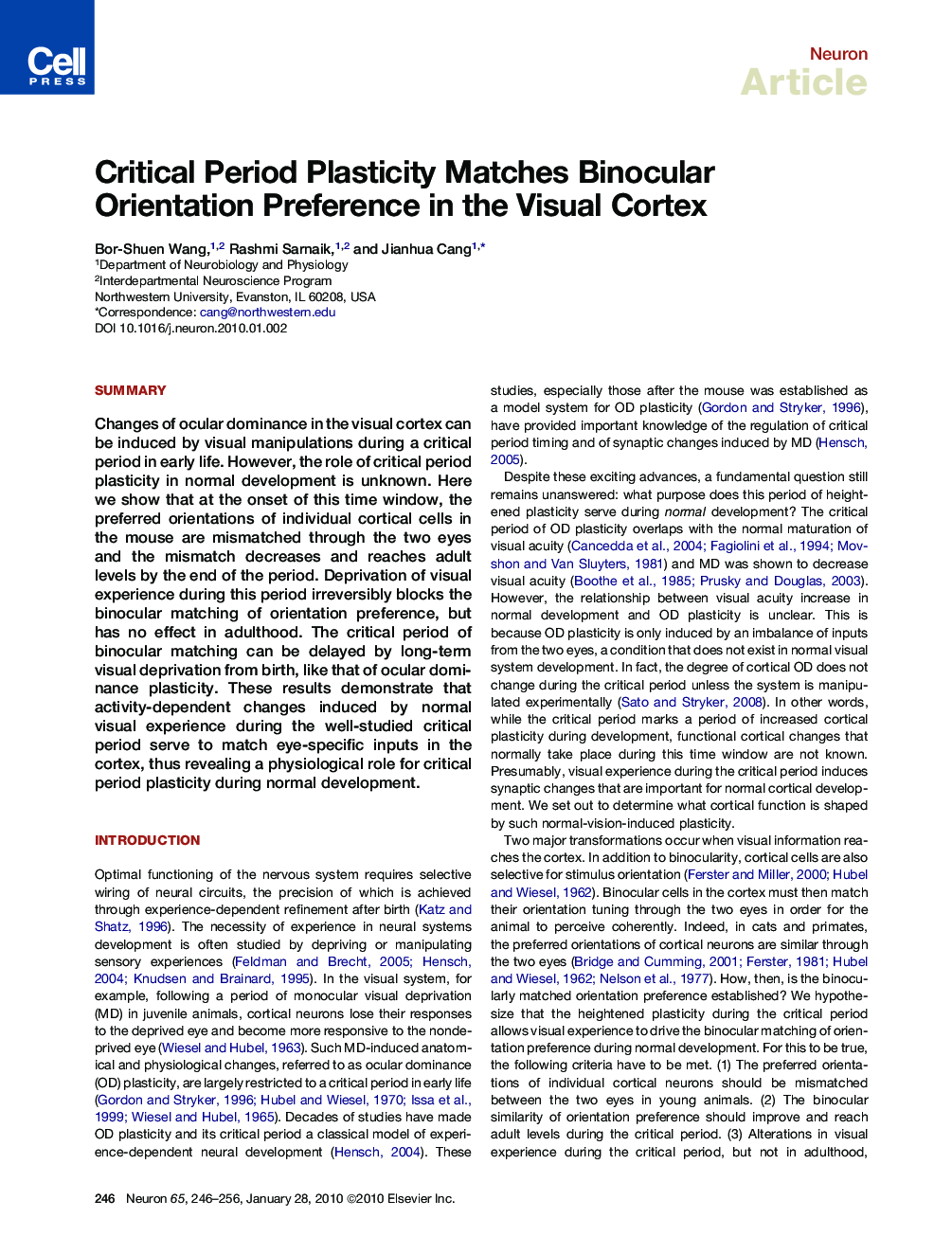| Article ID | Journal | Published Year | Pages | File Type |
|---|---|---|---|---|
| 4321613 | Neuron | 2010 | 11 Pages |
SummaryChanges of ocular dominance in the visual cortex can be induced by visual manipulations during a critical period in early life. However, the role of critical period plasticity in normal development is unknown. Here we show that at the onset of this time window, the preferred orientations of individual cortical cells in the mouse are mismatched through the two eyes and the mismatch decreases and reaches adult levels by the end of the period. Deprivation of visual experience during this period irreversibly blocks the binocular matching of orientation preference, but has no effect in adulthood. The critical period of binocular matching can be delayed by long-term visual deprivation from birth, like that of ocular dominance plasticity. These results demonstrate that activity-dependent changes induced by normal visual experience during the well-studied critical period serve to match eye-specific inputs in the cortex, thus revealing a physiological role for critical period plasticity during normal development.
► Orientation preference of cortical neurons is binocularly mismatched in young mice ► Binocular matching of orientation preference takes place during the critical period ► Binocular matching requires normal visual experience and NMDA receptor activation ► Visual deprivation from birth delays the critical period of binocular matching
